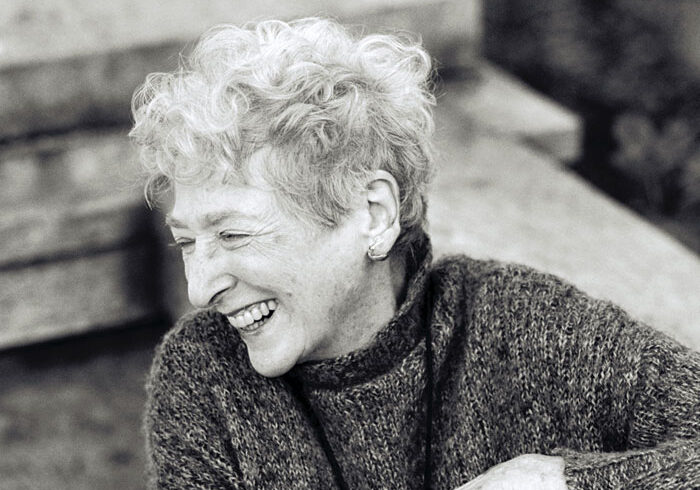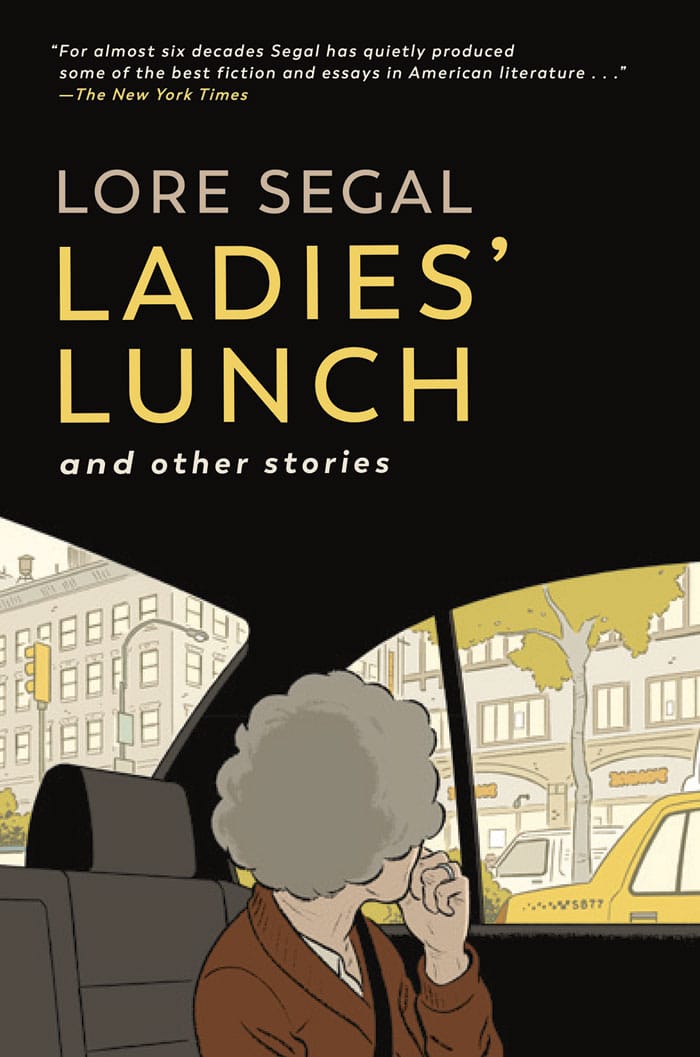 Lore Segal Photo by Ellen Dubin
Lore Segal Photo by Ellen Dubin Ruth, Bridget, Farah, Lotte and Bessie are longtime friends. For 30 years, they’ve met for lunch once every two months to discuss what’s going on in their lives and reminiscence about the past. Now that they are getting older, however, their conversations are focusing more on age and illness and death, which is happening all around them.
 These friendships and conversations appear in the new book “Ladies’ Lunch,” a collection of short stories by author Lore Segal that were originally published in the New Yorker. Segal, 95, based the stories on her own lunches with friends, which would always turn into four o’clock tea and a drink at five. Since COVID, she meets with her group on Zoom and finds inspiration for her writing in their gatherings.
These friendships and conversations appear in the new book “Ladies’ Lunch,” a collection of short stories by author Lore Segal that were originally published in the New Yorker. Segal, 95, based the stories on her own lunches with friends, which would always turn into four o’clock tea and a drink at five. Since COVID, she meets with her group on Zoom and finds inspiration for her writing in their gatherings.
Instead of turning her stories into a work of nonfiction, Segal decided to fictionalize her stories for “Ladies’ Lunch.”
“I think like a novelist, rather than a journalist or historian,” she said. “I let what comes to me as an idea, a feeling, a thought grow into its true shape without worrying about ‘what really happened.’”
In one poignant scene in “Ladies’ Lunch,” the women – sans Lotte – discuss how Lotte was in assisted living and acting out.
“They laughed; they were quite a long moment,” Segal writes. “They had watched their witty friend turn into the angry old person who abused her aides, irrationally – or was it rational to fight the two sons who put her into a well-run assisted living in the boonies from where – quite potty by this time – Lotte had never stopped plotting to drive herself home.”
“It shows old women mostly continuing to be themselves, and shows them discussing their losses and diminishing energies.” – Lore Segal
“It shows old women mostly continuing to be themselves, and shows them discussing their losses and diminishing energies,” said Segal.
Later in the book, a character, Ilka, is introduced. Ilka is a Holocaust survivor from Vienna who discusses getting a pet tortoise the week of the Anschluss, when Hitler took over Austria in 1938. She talks to Lotte about what may have happened to her tortoise.
“The three brownshirts walked in and gave us 24 hours to be out of our apartment,” she says. “I look back and I don’t see . . . the Kröterl [tortoise] didn’t come with me to Edith’s.”
Another one of the ladies, Bridget, says, “And now… MyKroeterl38@usa.com is your email. It’s how I write to you.”
“Yes,” Ilka says. “Now that’s my address.”
Segal borrowed Ilka from her novel, “Her First American,” and said, “she, like me, was born Jewish and in Vienna. She cannot prevent herself from reverting to her experience.”
The author was born into a middle-class Jewish family in Vienna, escaping on the Kindertransport and going to England. After she immigrated to the United States, she became a celebrated writer, releasing the widely acclaimed novel “Other People’s Houses,” which was based on a journal she kept while a refugee in England and living with a foster family. She was a Pulitzer Prize finalist for her book, “Shakespeare’s Kitchen,” and she wrote the children’s book “Tell Me a Mitzi.” She also freelanced for New York Times Book Review, Harper’s Magazine and the New Republic.
Segal still contributes to the New Yorker, most recently published flash fiction in the magazine over the summer. She lives in New York City and writes every morning for four hours.
“I now have an aide with whom I take a brief walk on Riverside Drive,” she said. “In the afternoon, I see friends, or read, or nap or watch a movie. The day ends with the seven o’clock news.”
Currently, Segal is working on more “Ladies’ Lunch” stories. When asked why people enjoy her stories, she kept it simple.
“I don’t know,” she said. “But it makes me happy when they do.”























 More news and opinions than at a Shabbat dinner, right in your inbox.
More news and opinions than at a Shabbat dinner, right in your inbox.